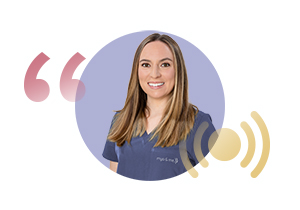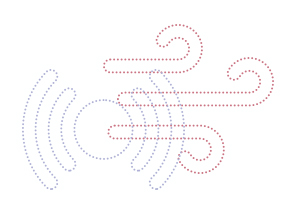
“A physical restriction of the tongue may prevent it from resting in the correct position.”
– Jennifer

One of the main outcomes we aim for through Myofunctional Therapy is proper resting oral posture. We achieve this when the tongue, teeth and lips are all resting comfortably in the right place.
The Importance of Oral Posture and Myofunctional Therapy
Where certain muscles may not be working the way they should be, this can affect someone’s “resting face”. Those with poor oral posture typically present with visible symptoms such as:
- The tongue sitting low in the mouth or protruding outwards
- The lips being parted at rest
- The chin looking dimpled or pebbled
The tongue acts as the scaffolding for the face and is critically important in ensuring good oral posture. The tongue is in the correct position when it is resting in the roof of the mouth, not the floor, with the tip touching the hard palate behind the top teeth.
The pressure of the tongue helps in developing the dental arches (jaws) and encouraging correct growth. If there is low tongue posture, this lack of pressure has a negative effect on how a child’s face – in particular their upper jaw – grows. If the tongue is resting in the roof of the mouth, this provides the support the upper jaw needs to develop properly.
Through Myofunctional Therapy, we use a blend of targeted exercises to encourage the tongue and lips to rest in the correct position and improve oral posture. To find out more about what Myofunctional Therapy with Myo & Me entails, please visit Our Treatments page.
Understanding Tongue Tie
A physical restriction of the tongue may prevent it from resting in the correct position. This is commonly known as a tongue tie, caused by a restrictive string-like tissue under the tongue. A tongue tie is something that develops during pregnancy and often goes undetected, even into adult life. They can significantly affect:
- Feeding and swallowing, which is particularly noticeable in babies and infants
- Speech
- Breathing
- Posture, both orally and more broadly across the body
A tongue tie can be released through a procedure called a frenectomy. Myofunctional Therapy plays a critical role in preparing the patient for this safe and effective procedure, as well as providing post-operative support. After a tie release, the value of therapy can be unlocked further and greater improvements in eating, breathing and posture achieved.
Our Treatments
We provide Myofunctional Therapy to adults and children from 2 years old. Myofunctional Therapy with Myo & Me is designed to put you – the whole you – first, with treatments tailored to your individual needs. We believe in making therapy enjoyable, accessible, and manageable to drive successful outcomes for our patients.
Holistic Patient Care
Myofunctional Therapy is mainly delivered online, though we hold our Myofunctional Assessments and, where required, some treatments in-person at our London clinic.
We deliver Myofunctional Therapy in collaboration with other healthcare professionals located in London and across the UK, including orthodontists, ENT (ear, nose and throat) doctors, and osteopaths.
Myo & Me has a network of specialists in these areas that are equally passionate about delivering a holistic approach to patient care and maximising patient outcomes.
